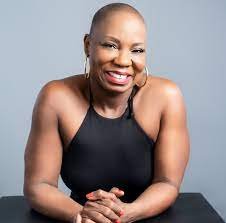Perimenopause and Longevity with Dr. Arianna Sholes-Douglas
We sit down with Dr. Arianna Sholes-Douglas to talk about the tricky time of perimenopause and longevity for women in a broader sense. Dr. Arianna is is the founder and visionary of Tula Wellness. She has practiced medicine for over 20 years and is board certified in Obstetrics & Gynecology. She sees patients in person and virtually across the United States. One of the areas we agreed on, is that lifestyle informs everything and that it should be the first line of defense. But that different women require different approaches depending on the severity of their symptoms and their life circumstances.
Here are some key points from the interview framed in the broader sense of what is happening in women’s health and longevity. Time stamps can be found below, as well as the link to the full video:
Purchase Dr. Arianna's book ‘The Menopause Myth’
We need better preparation for what will come
Women who get their first period before the age of 11 are more likely to hit menopause before the age of 40, a study finds.Just like during puberty, it’s hard to determine when women will go into perimenopause and how affected they will be. Starting to inform women and supporting them in leading a healthy lifestyle conducive to thriving, is key as early as 35.
Lifestyle changes are inevitable
There is a long life to be led after menopause! Whether a woman takes hormones to help with the symptoms or not, they are no excuse to continue lifestyle habits that could contribute to chronic conditions. The good news: we have so much more resources to adapt those changes and innovation in women’s health is centered around personalizing those resources, too. Like we do here.
What contributes to health & longevity?
It’s all about quality of life and how you feel.
Making lifestyle changes doesn’t take long to show effects and make you feel better. Longterm, women should want to ensure that they can lead a happy, healthy, longer life and for that, they need to be educated about their options and work with both knowledgeable clinicians and people who can support their ongoing lifestyle health at home.
What does the future hold?
Overall, looking to the future, we have to apply a whole life-course approach, helping women through the different stages of their reproductive and aging health. We have to listen to women’s voices, validate them and give them agency and we have to continue to evolve and challenge the evidence base.
Go to Dr. Arianna’s website to find out more and do her menopause assessment.
00:00Intro
01:30Why should women be prepared for perimenopause as early as 35?
03:15What should our mothers have shared with us?
05:55 How young are the patients that come to see Dr. Arianna?
07:25 What are the most common symptoms that patients report?
09:40 What are Dr. Arianna’s thoughts on HRT and lifestyle modifications?
12:20 Does lifestyle matter even for women who are on HRT?
15:45 Do people stick to protocols?
18:25 What is Dr. Arianna’s longterm view on HRT?
20:40 What contributes to longevity and healthspan overall?

